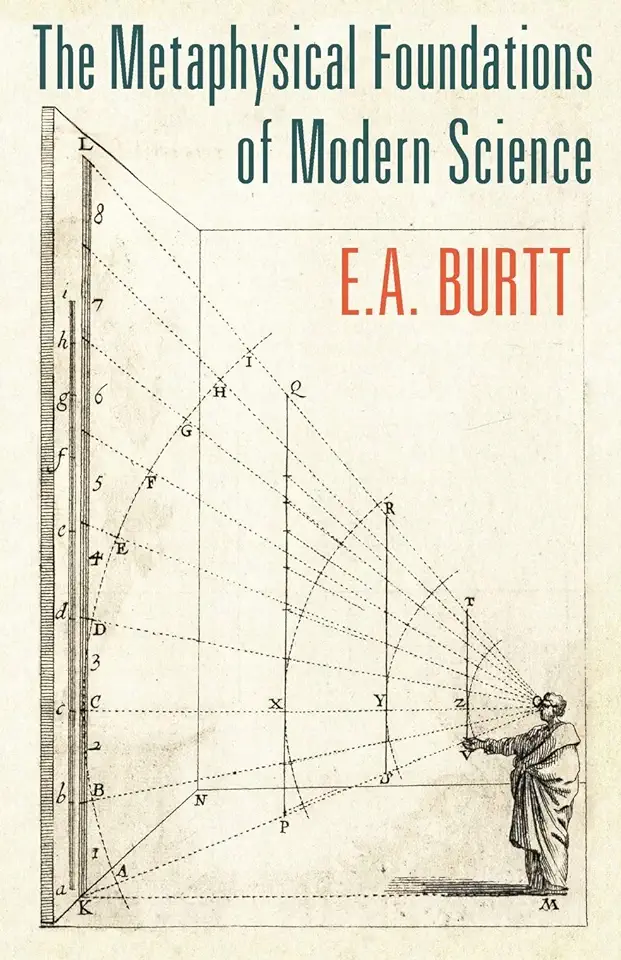
The Metaphysical Foundations of Modern Science - E. A. Burtt
The Metaphysical Foundations of Modern Science
In his seminal work, "The Metaphysical Foundations of Modern Science," E. A. Burtt delves into the philosophical underpinnings that shaped the development of modern science. Burtt argues that the scientific revolution was not merely a product of empirical observation and experimentation, but also a result of profound shifts in metaphysical thought. By examining the intellectual landscape of the 16th and 17th centuries, Burtt reveals how the rise of modern science was intricately intertwined with the decline of traditional Aristotelian and Scholastic philosophies.
The Crisis of Aristotelianism
At the outset of the scientific revolution, the dominant intellectual paradigm was Aristotelianism, a comprehensive philosophical system that had dominated Western thought for centuries. Aristotelianism was based on the notion of a hierarchical universe, with God as the unmoved mover at the apex, followed by the celestial spheres, and finally the terrestrial realm. This geocentric model of the universe was supported by a teleological view of nature, which held that everything in the universe had a purpose or final cause.
However, the rise of new astronomical observations and the development of new mathematical tools began to challenge the foundations of Aristotelianism. Nicolaus Copernicus's heliocentric model of the solar system, Galileo Galilei's observations of the moons of Jupiter, and Johannes Kepler's laws of planetary motion all contradicted the geocentric view of the universe. These scientific discoveries led to a crisis in traditional Aristotelian thought and opened the door for new metaphysical ideas.
The Rise of Mechanical Philosophy
In the wake of the crisis of Aristotelianism, a new philosophical movement emerged: mechanical philosophy. Mechanical philosophy rejected the teleological view of nature and instead proposed that the universe was governed by mechanical laws. This mechanistic worldview was heavily influenced by the success of Newtonian physics, which reduced the complex phenomena of the natural world to the interactions of particles in motion.
Mechanical philosophy had a profound impact on the development of modern science. It provided a new framework for understanding the physical world and led to the development of new scientific disciplines, such as mechanics, optics, and thermodynamics. The mechanistic worldview also influenced other fields of thought, such as philosophy, economics, and even theology.
The Metaphysical Implications of Modern Science
Burtt argues that the rise of modern science had far-reaching metaphysical implications. The mechanistic worldview challenged traditional notions of God, purpose, and the nature of reality. The idea of a universe governed by impersonal laws seemed to undermine the belief in a benevolent deity who intervenes in the world. The teleological view of nature was replaced by a mechanistic view that saw the universe as a vast machine, operating according to fixed laws.
These metaphysical shifts had a profound impact on Western thought and culture. They contributed to the rise of secularism, the decline of religious belief, and the increasing emphasis on rationality and empiricism. The mechanistic worldview also laid the foundation for the technological advancements that have shaped the modern world.
Conclusion
"The Metaphysical Foundations of Modern Science" is a seminal work that provides a deep understanding of the philosophical underpinnings of modern science. Burtt's analysis of the crisis of Aristotelianism, the rise of mechanical philosophy, and the metaphysical implications of modern science is essential reading for anyone interested in the history of science, philosophy, and the intellectual foundations of our modern world.
This book is a must-read for anyone interested in the history of science, philosophy, or the intellectual foundations of our modern world. Burtt's erudite and engaging writing style makes complex philosophical concepts accessible to a wide range of readers. "The Metaphysical Foundations of Modern Science" is a classic work that continues to inspire and challenge readers to this day.
Enjoyed the summary? Discover all the details and take your reading to the next level — [click here to view the book on Amazon!]